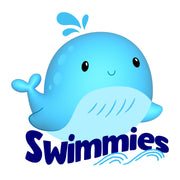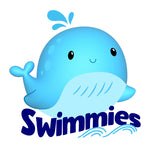Dehydration: What Parents Need To Know
Dehydration can be a real concern for parents, especially during the hot summer months when babies and toddlers are more prone to sweating and losing fluids. In this article, we will explore the importance of dehydration awareness, how it works, the benefits of prevention, potential downsides of treatment, and alternative options to combat dehydration. So, let's dive in!
Immerse your child in a world of fun with Swimmies, our vibrant selection of bath toys! Transform each bath time into an imaginative journey, igniting creativity and happiness. Grab yours now and make lasting memories during bathtime!
What Is Dehydration?
Dehydration is a condition that arises when the body experiences a deficit in its fluid balance. This imbalance occurs when the loss of bodily fluids exceeds the intake of fluids, and it can have a profound impact on various essential physiological processes. The consequences of dehydration can manifest in a wide array of symptoms, making it a significant concern for health and well-being. In infants and toddlers, the signs of dehydration can be particularly concerning. These young and vulnerable individuals may exhibit several key indicators of dehydration, which are essential for caregivers and parents to recognize promptly.

Dive Into Swimmies - Where Fun Meets Safety For Your Little Swimmers!Unleash the Joy of Water Play with Swimmies Discover the perfect blend of comfort, style, and safety with Swimmies, your trusted companion for all things aquatic:
Our dedication to providing the ultimate water play experience for your children extends beyond our product range. We're here to be your partner in creating memorable aquatic moments, full of laughter, learning, and adventure. Are you ready to embark on this incredible water journey with us? Dive into the world of Swimmies and experience the difference. Your little ones will thank you for it! |
Why Is Awareness Of Dehydration Important?
Being aware of dehydration and its potential consequences is crucial for parents. By recognizing the signs early on, parents can take immediate action to prevent dehydration from escalating into a serious condition. Prompt hydration can help avoid health issues such as dizziness, irritability, and even heatstroke.
What Are The Benefits Of Preventing Dehydration?
Preventing dehydration is paramount to ensuring your baby or toddler stays healthy and comfortable. Here are some benefits of keeping your little one properly hydrated:
Sustained Energy
The importance of energy cannot be overstated, especially in the vibrant world of children. Adequate hydration acts as a reliable source of energy, providing the fuel necessary to keep your little ones active, curious, and engaged in their daily adventures. Whether they're exploring the backyard or embarking on imaginative journeys, well-hydrated kids are better equipped to maintain their enthusiasm and vitality.
Temperature Regulation
As the sun beats down or your child enthusiastically engages in physical activities, their body works diligently to maintain an optimal temperature. Proper hydration plays a pivotal role in this process. It allows your child's body to effectively dissipate excess heat through sweating, ensuring they stay cool and comfortable, even in the hottest of weather or during energetic playdates.
Improved Concentration
Young minds are constantly absorbing new information and honing their cognitive abilities. Adequate hydration is a silent ally in this intellectual journey. When your child is well-hydrated, their brain functions optimally, leading to improved concentration, enhanced memory retention, and a sharper ability to learn. It paves the way for better focus during schoolwork, storytime, or any educational endeavor, setting a strong foundation for their future learning experiences.
What Does Dehydration Do To The Body?
Dehydration can have several negative effects on the body, especially in babies and toddlers. Here's how dehydration affects the body:
- Impaired Physical Performance: One of the most apparent consequences of dehydration is impaired physical performance. The lack of sufficient fluid in the body can lead to decreased energy levels and reduced physical endurance.
- Digestive Issues: dehydration can wreak havoc on the digestive system. Inadequate hydration can hinder the digestive process, causing problems such as constipation and an upset stomach.
- Urinary Problems: Urinary problems are another area where dehydration can manifest its negative effects. Dehydration may result in urinary tract infections due to a decrease in urine production, which can lead to the concentration of urine and the formation of kidney-related issues.
- Skin and Body Temperature: The impact of dehydration extends to the skin and the body's ability to regulate temperature. When the body lacks the necessary hydration, it struggles to maintain skin moisture and a stable body temperature. T
- Mood and Cognitive Function: Beyond the physical realm, dehydration can also affect an individual's mood, cognitive function, and overall mental well-being. It has the potential to disrupt neurological processes, leading to irritability, mood swings, and difficulty concentrating.
What Foods Hydrate You Quickly?
While drinking fluids is the primary source of hydration, certain hydrating foods can complement your child's fluid intake. Here are some water-rich foods that can help keep your little one hydrated:
- Watermelon: Among the top contenders in the realm of hydrating foods, we have watermelon, a delicious and refreshing fruit that stands out with its impressive water content, accounting for about 92% of its composition.
- Cucumbers: Cucumbers are another hydrating superstar. Their crisp and mild flavor, coupled with a high water content, makes them a perfect choice for youngsters. These green veggies are not only hydrating but also easily digestible, making them a suitable option for both babies and toddlers, promoting their hydration and overall health.
- Strawberries: Strawberries, with their enticing natural sweetness and significant water content, offer a delightful way to maintain hydration. These red gems are not only a tasty treat but also a nutritious one, providing essential vitamins and minerals while contributing to your child's daily fluid needs.
- Oranges: Oranges, packed with hydrating juice and boasting a generous supply of vitamin C, are a versatile option for promoting hydration. Whether served as juicy slices or freshly-pressed orange juice, they not only quench thirst but also deliver a dose of immune-boosting vitamin C, helping to keep your child healthy and adequately hydrated.
What Drink Will Hydrate You The Fastest?
While water remains the best choice for hydration, there are other options that can quickly replenish fluids. If your child needs quick hydration, consider:
Pediatric Electrolyte Solutions
These solutions are specifically formulated to replace lost fluids and electrolytes efficiently. Always consult your pediatrician before using.
Coconut Water
Coconut water is a natural source of electrolytes and can be an effective hydrating option for children.
Diluted Fruit Juice
If your child isn't a fan of plain water, diluting fruit juice with an equal amount of water can make it more appealing while still hydrating effectively.
Final Thoughts On Dehydration
We have explored the importance of dehydration awareness for parents and the well-being of their little ones. By recognizing the signs and taking preventive measures, we can ensure that our babies and toddlers stay happy, healthy, and properly hydrated. Remember, dehydration can have serious consequences, so it's essential to be vigilant and provide adequate fluids and hydration.
At Swimmies, we are dedicated to providing the best products to enhance your child's water-related experiences. From swimwear to bath toys, we have a range of items that promote hydration and ensure a fun and safe time in the water. Take a moment to check out our collection and provide your little one with the gear they need to stay hydrated and enjoy their water activities to the fullest.
Prioritize the health and happiness of your child – explore our swimming gear for babies today!
Create a memorable impression with Swimmies, our unique range of baby floaties! Designed to ensure safety and provide endless enjoyment, these floaties promise a delightful aquatic experience for your young child. Don't wait, start shopping now to kick off those watery adventures, as each float brings happiness!
Frequently Asked Questions About Dehydration
Can dehydration affect my child's athletic performance?
Yes, even mild dehydration can impair physical performance and cognitive function during physical activities.
How much fluid does my baby or toddler need to stay hydrated?
The daily fluid intake for babies and toddlers can vary based on their age and activity level. As a general guideline, infants up to 6 months old typically rely on breast milk or formula for hydration. For babies, 6 months and older, adding sips of water between meals can help maintain hydration. Toddlers can consume around 2-4 cups (480-960 ml) of fluids per day, including water and other non-caffeinated beverages.
How can I encourage my child to drink more fluids?
To encourage fluid intake, offer fluids at regular intervals throughout the day. You can use colorful sippy cups or fun straws to make drinking more exciting. Additionally, including fruits and vegetables high in water content in their diet can help maintain hydration.
Is it safe to give my child ice-cold drinks?
While children can enjoy cold drinks, avoid extremely cold fluids as they may cause stomach cramps or discomfort.
Can infants and toddlers get dehydrated while swimming?
Yes, swimming can contribute to dehydration, so it's important to offer fluids regularly during water activities.
Are there any medications that can increase the risk of dehydration?
Some medications, such as diuretics and certain antihistamines, may increase urine output and contribute to dehydration. Consult your doctor for guidance.
Can dehydration cause skin problems in children?
Dehydration can lead to dry skin, chapped lips, and other skin issues. Adequate fluid intake helps maintain healthy skin.
Should I worry about dehydration if my child has a fever?
Yes, fever can increase fluid loss through sweating, so it's important to offer fluids more frequently to prevent dehydration.
Is it necessary to dilute the formula with water during hot weather?
During hot weather, you can provide additional water between formula feedings to keep your baby hydrated. However, it is important to consult your pediatrician regarding any modifications to your baby's feeding routine, as individual circumstances may vary.
Can teething cause dehydration in babies?
Teething itself does not directly cause dehydration. However, excessive drooling can lead to increased fluid loss, so it is important to offer fluids more frequently during the teething phase.

